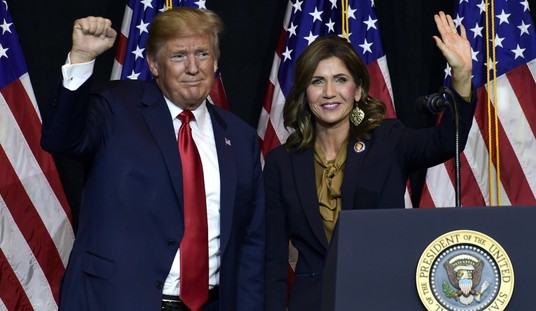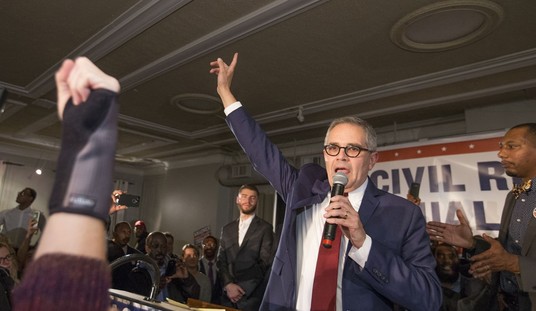
Today, the vice president of advertising for Facebook, Rob Goldman, took to Twitter to give his take on Russian use of Facebook ads in the 2016. This is important because a key part of the campaign to delegitimize President Trump and, as they say, place an asterisk by his name as being elected by a foreign power. It is sort of frightening that Mueller’s indictment sort of feeds that (Mueller says the spent “thousands of dollars a month” on online ads) and John Brennan deliberately tried to keep that narrative alive:
DOJ statement and indictments reveal the extent and motivations of Russian interference in 2016 election. Claims of a “hoax” in tatters. My take: Implausible that Russian actions did not influence the views and votes of at least some Americans.
— John O. Brennan (@JohnBrennan) February 16, 2018
Facebook has shared the ad expenses and copies of ads with Congress, and, as is clear from the indictment, has cooperated with the special counsel. Before going on to Goldman’s tweets, let’s review the facts of the Russian Facebook campaign. According to sworn testimony by Facebook’s general counsel to the Senate Intelligence Committee in November, Russian accounts purchased $100,000 in pre-election ads. They spent on Twitter and Instagram, but for this story let’s keep an eye on Facebook alone. When you look at ads targeted at what turned out to be key battlegrounds, the expenditures are not impressive. This is from the Washington Post, also in November.
The Russian effort looks even less influential when one considers the tiny amount of Russian Facebook spending directed at key battleground states — $1,979 in Wisconsin, $823 in Michigan and $300 in Pennsylvania.
Now to the tweets:
Very excited to see the Mueller indictment today. We shared Russian ads with Congress, Mueller and the American people to help the public understand how the Russians abused our system. Still, there are keys facts about the Russian actions that are still not well understood.
— Rob Goldman (@robjective) February 17, 2018
Most of the coverage of Russian meddling involves their attempt to effect the outcome of the 2016 US election. I have seen all of the Russian ads and I can say very definitively that swaying the election was *NOT* the main goal.
— Rob Goldman (@robjective) February 17, 2018
The majority of the Russian ad spend happened AFTER the election. We shared that fact, but very few outlets have covered it because it doesn’t align with the main media narrative of Tump and the election. https://t.co/2dL8Kh0hof
— Rob Goldman (@robjective) February 17, 2018
Read this one again: “The majority of the Russian ad spend happened AFTER the election.”
The main goal of the Russian propaganda and misinformation effort is to divide America by using our institutions, like free speech and social media, against us. It has stoked fear and hatred amongst Americans. It is working incredibly well. We are quite divided as a nation.
— Rob Goldman (@robjective) February 17, 2018
The single best demonstration of Russia's true motives is the Houston anti-islamic protest. Americans were literally puppeted into the streets by trolls who organized both the sides of protest. https://t.co/9w1EAl28CH
— Rob Goldman (@robjective) February 17, 2018
The Russian campaign is ongoing. Just last week saw news that Russian spies attempted to sell a fake video of Trump with a hooker to the NSA. US officials cut off the deal because they were wary of being entangled in a Russian plot to create discord. https://t.co/jO9GwWy2qH
— Rob Goldman (@robjective) February 17, 2018
Eh, maybe or maybe not. I posted on this story. The the CIA denied it happened. Put what value you will on a CIA denial of a obvious leak from the CIA.
There are easy ways to fight this. Disinformation is ineffective against a well educated citizenry. Finland, Sweden and Holland have all taught digital literacy and critical thinking about misinformation to great effect. https://t.co/V0JNvW083W
— Rob Goldman (@robjective) February 17, 2018
ummmkay. I’m not sure encouraging us to be more like Finland, Sweden, or the Netherlands is a compelling argument but I get what you’re saying.
We are also taking aggressive steps to prevent this sort of meddling in the future by requiring verification of political advertisers and by making all ads on the platform visible to anyone who cares to examine them. https://t.co/EPrubt7mqm
— Rob Goldman (@robjective) February 17, 2018
I’m all in favor of due diligence and “know your customer.” I’m afraid that Facebook, being filled to the gills with SJWs, is going to be a lot more critical of ads by conservative groups than others. But verifying customers is a great starting point…in principle.
One the whole, Goldman’s analysis and approach seem reasonable. It is one of the few sane data points in this discussion.













Join the conversation as a VIP Member